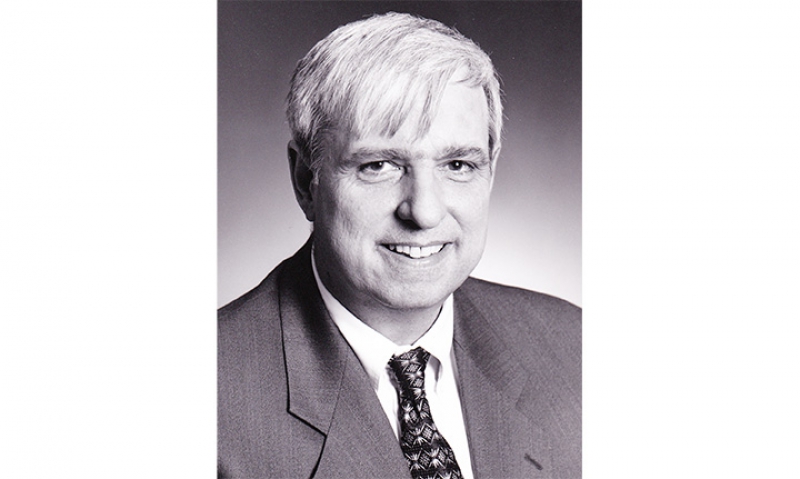
George Basher, chairman for VA's Advisory Committee on Homeless Veterans, says ending veterans homelessness remains a top VA priority.
As the chairman for VA's Advisory Committee on Homeless Veterans (ACHV) and a devoted Legionnaire, George P. Basher has an important perspective and a great deal of influence on VA's goal to end veterans homelessness by the end of 2015. With only 13 months remaining, Basher says that the effort to get every veteran off the streets remains as strong as ever - even after VA's crushing health-care scandal this summer.
Since 2005, Basher has held his position with ACHV, which Congress chartered in 2001 through 38 U.S.C. § 2066. Per Congress' mandate, the ACHV is charged with providing advice to VA and its secretary on homeless veterans issues and services. In so doing, the 15-person committee gives guidance on policy and programs that VA should implement in order to help keep veterans off the streets.
As a longtime member of Melvin Roads Post 1231 in Rensselaer, N.Y., Basher credits The American Legion, both nationally and locally, for helping VA make the significant progress it has made toward its goal. Though, he says the Legion's continued advocacy - and assistance from private enterprises - is crucial for VA to realize its ultimate goal of eradicating veterans homelessness.
Basher recently participated in a question-and-answer session with The American Legion, giving his thoughts on the progress of ending veterans homelessness, how that goal is met in the next 13 months and how posts and Legionnaires everywhere can get involved in the fight.
Q: From 2009 to 2013, VA saw nearly a 24 percent decline in veterans homelessness. What do you attribute that to?
A: One of the things is the (Housing of Urban Development and Veterans Affairs Supportive Housing) program that the committee has over the years recommended to VA.... Early on, we recognized the most effective way to get homeless veterans off the street is to make sure they actually have a place to go....
A lot of other programs have helped, like Supportive Services for Veterans With Families (SSVF), which is more of a prevention tool. We recognized early on that the way you keep the number of homeless veterans down is to keep them from spiraling into homelessness. That’s really a challenge for VA because now they are looking at a way to not only help veterans, but also veterans and their families. SSVF is really one of the first programs VA has ever created that has addressed that need and met it.
Another thing that has made a big difference is a change to the policy of 'housing first.' Back in the old days, if you were going into the VA clinic looking for transitional housing, the first thing you had to do was have 90 days clean and sober. That closed the door on a lot of folks. Since then, VA has adopted this 'housing first' model. They get people into housing and then go after them with treatment. It seems to be pretty effective.
Q: With new VA Secretary Robert McDonald taking over, has anything changed regarding the goal to end veterans homelessness?
A: So far we haven’t seen it.... There was a lot of concern early on when the new secretary came in that there was going to be some big changes made, but he has told (his staff) to continue to march and that this is still a top priority for VA. You probably won’t see as much publicity or visibility because he has some other fish he really has to fry to get Congress off his back, but I haven’t see any diminished resources or diminished prioritization from the administration.
Q: What is the plan for the next 13 months?
A: The plan is to continue to march.... We are going to continue to look for more and better ways to do prevention…. (McDonald’s) goal is to get more involvement from philanthropy and private enterprise to help partner with VA which would really be a change for VA because most of what VA has done to date has always been kind of been with a ‘fortress VA attitude.’
Q: What can a local Legionnaire or post do to help?
A: Host a 'homeless stand down.' A stand down is a VA-sponsored event to the extent that VA puts up money and helps organize them and helps with some of the logistics. But mostly it is volunteer-driven. What you need is a place big enough to have a 'stand down' and a parking lot big enough to hold the people who are there volunteering, and a way to make all that stuff come together.
Around the country, a lot of Legion posts are the center of that whole activity. A post near my home post has, for years, put on a regional stand down which gets a couple hundred volunteers and typically sees 200 or 300 veterans over a few days.
Posts or Legionnaires interested in hosting a VA "homeless stand down" should visit VA's homelessness website and begin the application process to receive funding to host one. Alternatively, they may inquire with the National Coalition For Homeless Veterans for assistance or guidance on hosting a 'stand down.'
- Homeless Veterans

